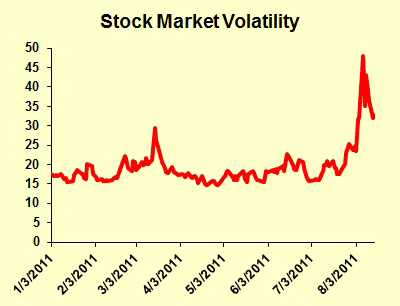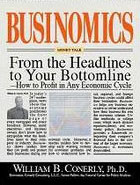Manufacturing and related wholesale businesses are mostly enjoying better sales than last year, but Wall Street gyrations have thrown a scare into many executives of heavy industry. The key questions for manufacturing and distribution are whether the stock market means anything for this business. If it does mean something, then what is that? More importantly, which sectors of manufacturing and distribution will thrive, and which are most vulnerable to economic turmoil?

The connection between the stock market and the economy is often confusing, because either one can affect the other. That said, most often causation goes from the economy to the stock market. Investors are concerned about the future earnings of companies whose stock they are following. When the economic forecast looks poor, analysts will lower their estimates of future earnings, resulting in selling of stocks, lowering the overall stock market averages.
The analysts don’t even have to forecast a recession for the stock market to decline. If they change their forecast from corporate profits growing by ten percent a year to a less-optimistic figure of five percent growth, that by itself will trigger a decline in stock prices. The problem is not that the economy is headed down, but that stock values were previously based on too optimistic a projection of the economy.
Causation can also run the other way, such as when a fall in the stock market makes capital spending too expensive. Reduced expenditures on plant and equipment will hurt the economy. Generally, though, causation runs from the economy to the stock market.
So what is the stock market saying today about the future path of the economy? Volatility seems to have been triggered by Standard & Poor’s downgrade of United States Treasury bonds. The downgrade by itself isn’t a disaster—the interest rates on government bonds has actually declined, so investors obviously are not worried about a government default. Rather, the S&P bond downgrade was a wake-up call. The federal government will have to adjust to the reality that its current fiscal path is unsustainable.
A sustainable path requires spending cuts or tax increases or some combination of the two. Neither is good for the economy in the short run, according to the models that most of us economists use. A program to put the nation’s fiscal house in order is obviously good in the long run, but it’s hard to imagine a reasonable program that does not involve some short-run pain. That has the stock market in the doldrums.
Investors are also nervous about Europe. Greece is a relatively small country, but Italy is large. An Italian debt crisis could well plunge the Continent into recession. A European recession would probably spread to the United States. Probably, though not certainly.
Between the American budget and European debt, there are good reasons for stock market investors to be nervous.
What does this turmoil mean to industrial manufacturers and wholesalers? There are some who will be hurt more, and some less, and it depends on both geography and product type.
Businesses selling to Europe are at the greatest risk. I strong recommend contingency planning for the possibility of a recession, especially one centered on Europe. It’s too early to pull the trigger on the recession plan, but it’s not too early to sketch out the plan.
Asia, on the other side of the planet, is the safest market to be in right now. There will someday come a Chinese recession, but right now China, India and their neighbors are strong.
In the middle are companies selling in North America. There is certainly risk, but another recession in the near-term is far from a certainty. I recommend planning for moderate growth, with contingency plans for a downturn.
Different industries have different outlooks. Mining and transportation equipment are strong right now. Some companies tell me that their constraint is from vendor supplies rather than a weak order book. Businesses selling equipment that help other companies lower their operating costs are enjoying growth right now. That’s part of the reason that technology companies are doing well. On the other hand, corporations that sell machinery to expand productive capacity are generally seeing weak growth. Most industries are not using all the capacity that they developed before the recession and thus see little need to add more machinery.
Consumer discretionary spending will be weakly positive. Households actually have money to spend, at least in limited amounts. Nerves are frayed, though, not only because of the weak job market but now by stock market gyrations. The Dow Jones averages don’t directly affect most families, but news headlines are frightening to many. Finally, construction is weak, limiting growth of those businesses selling products into that industry.
What should top management of a manufacturing or wholesale company do right now? First, ignore most of the headlines and drill down to specific markets. Second, every business should develop contingency plans for a recession. (That advice applies to non-profits and government agencies, too.) Third, every business needs to take advantage of the growth that is occurring now—and the economy is actually growing, albeit slowly. Conditions may not be booming, but a successful business leader works with the economy he or she has. After a career watching companies weather various economic storms, I have concluded that I’d rather see good management in a weak economy than poor management in a boom.
- Bulenox: Get 45% to 91% OFF ... Use Discount Code: UNO
- Risk Our Money Not Yours | Get 50% to 90% OFF ... Use Discount Code: MMBVBKSM
Disclaimer: This page contains affiliate links. If you choose to make a purchase after clicking a link, we may receive a commission at no additional cost to you. Thank you for your support!






Leave a Reply